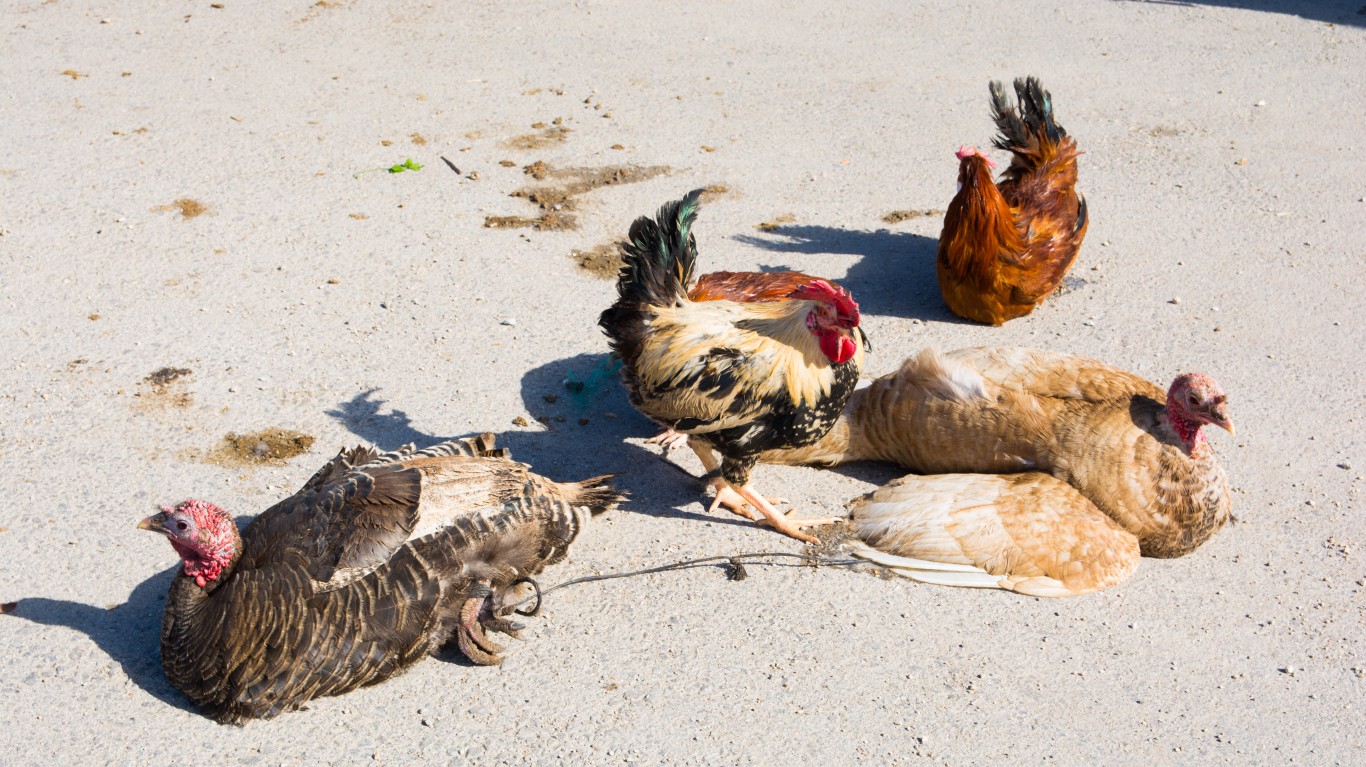Services
Grubhub Becomes Case Study of When Competition Doesn't Care About Profits

Published:
Last Updated:

Grubhub Inc. (NYSE: GRUB) has become no stranger to poor post-earnings reactions in its shares, but Tuesday’s move appeared to be the worst drop in a single day on record. The question shareholders now are faced with is whether or not Grubhub is facing an existential operating threat. After all, some of its venture-backed competition seems to care less about losing money on every transaction just to gain market share.
The company managed to post a net profit of only 1-cent per share (even if it’s $0.27 per share adjusted) as its customer churn is up and as consumers are spreading their business among a number of food ordering and delivery services.
On top of a weak quarter, the sales miss was also followed by a weak outlook for the ever-important holiday-quarter ahead.
While CEO Matthew Maloney said that this issues are happening across the food ordering and delivery spectrum, the Grubhub announcement to its shareholders said:
For years, we saw in our data that a Grubhub diner was extremely loyal to our platform. However, our newer diners are increasingly coming to us already having ordered on a competing online platform, and our existing diners are increasingly ordering from multiple platforms. We find this ‘sharing’ to be greatest among our newest diners, in our newest markets, but believe it is happening to some degree throughout our diner base.
Wedbush Securities maintained its Outperform rating but said it would review its prior $90 target after the conference call info. That report said:
In order to better compete, Grubhub will now step up investment in 1) sales teams to add restaurant partners faster; 2) more free delivery offers, and; 3) more loyalty offers, but will grow advertising slower.
Craig-Hallum downgraded Grubhub to Hold from Buy and slashed its target down to $40 from $100.
Grubhub was maintained as Outperform at Wedbush, but the firm’s note said that it was reviewing its $90 prior target as the company faces competitive dynamics pressuring its business model and that it will have to invest heavily to battle back.
BofA Merrill Lynch downgraded Grubhub to Underperform from Buy, and the firm’s price objective was slashed down to $30 from $98. The firm called the food delivery market being increasingly irrational as competitors are flooding the market with rewards and incentives that are making online diners less loyal to certain platforms.
Oppenheimer also threw in the towel on Grubhub, downgrading its rating to Underperform from Outperform and slashing its target down to $34 from $91. Its view is that competition from DoorDash, Uber and others is making matters worse with no sign of letting up.
It seems hard to imagine that a 2019 network of about 20 million active users and close to 115,000 available restaurants in more than 2,000 cities and towns could be so unprofitable.
Grubhub shares peaked at almost $150 in the second half of 2018 — but its shares were last seen down 41% at $34.30 after having hit a new 52-week low of $32.55. This now marks a low not seen in 2 and a half years. The company still has a $3.1 billion market cap even after all of this carnage.
Expectations of 35% growth in 2019 revenues and over 25% growth in 2020 revenues sound great on the surface, but if the company’s profits are being eaten by the barbarians at the gates it just won’t entice new buyers.
Grubhub was last seen down 41.7% at $34.02 on Tuesday with about an hour of trading left in the day. The 41 million shares which had traded hands represented more than 16-times normal trading volume.
This is what can happen when venture-backed competitors come into a marketplace and could care less about profitability for as long as the eye can see.
The thought of burdening your family with a financial disaster is most Americans’ nightmare. However, recent studies show that over 100 million Americans still don’t have proper life insurance in the event they pass away.
Life insurance can bring peace of mind – ensuring your loved ones are safeguarded against unforeseen expenses and debts. With premiums often lower than expected and a variety of plans tailored to different life stages and health conditions, securing a policy is more accessible than ever.
A quick, no-obligation quote can provide valuable insight into what’s available and what might best suit your family’s needs. Life insurance is a simple step you can take today to help secure peace of mind for your loved ones tomorrow.
Click here to learn how to get a quote in just a few minutes.
Thank you for reading! Have some feedback for us?
Contact the 24/7 Wall St. editorial team.